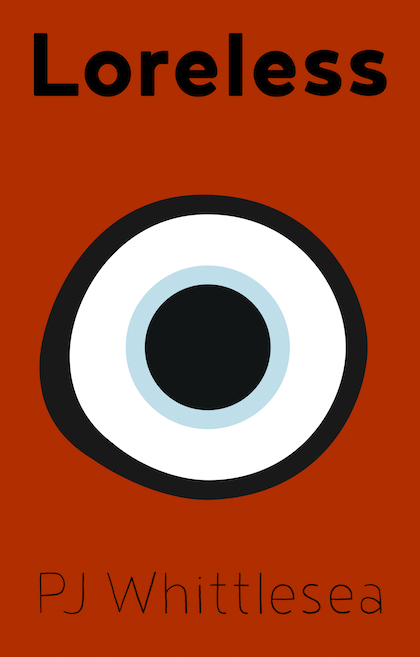Coping With Expat Sickness
I can’t relate to my birth country anymore. I feel like a stranger there.
Not only that, I don’t feel that I belong there anymore.
It must be some form of expat sickness.
It’s a strange thing really, being so disjointed. Maybe that’s not the right word.
Disowned?
Also not, I left the country, it didn’t leave me. It’s still there waiting for me to return.
The question is: will I return?
I would like to think so but don’t feel the connection anymore. I have lived for too long in another country to truly call myself an Australian.
I am only that by birth. It's something I have never really considered before.
I meet people every week in Amsterdam who ask me where I’m from.
If they don’t, I will invariably tell them. They hear it in my accent anyway. My Dutch is not perfect and it gives me away if I have to sprout a long sentence.
This means that I am not a fully fledged Dutchman either. I'm not sure I want to be that anyway.
They have a process here called inburgering. It is sort of akin to assimilation or integration. It’s a strange word which has all sorts of connotations, most of them not good.
Essentially, it means that once you have gone through the procedure, and passed all the tests, you can officially be considered for citizenship. In effect it means, from a bureaucratic point of view, that you will then be Dutch.
It’s kind of scary and makes me think of the Borg from Star Trek.
The only trouble is I am human and won’t just become Dutch, or any other alien for that matter.
I suppose that’s what it means if you are brought up in a country other than the one you reside in. You will be forever connected to that country.
You will never completely transform into a bonafide citizen of your adopted country.
It has more of a ring to it.
It cries: freedom!
I have always looked for that state. I remember yelling it out more than once at my mother as a teenager.
“I want to be free!”
And not the Queen kind of free. Just a general state of mind.
I am fortunate that I had the choice. My mother would always remind me of that as well. I had the choice because of my birth country.
I was already free.
I think the point of view of individual freedom is relative.
It all depends on how you feel.
If anything, I think the democratic nations of the world have moved away from freedom. They protect their own. If you want to join them you are required to fulfil certain criteria.
You are not free to think for yourself. You must act in a certain way. You must dress in a certain way. You must talk in a certain way.
It’s not even a question of race anymore.
It has to do with a lot of other factors. Actually, in my lifetime, the importance of race has changed dramatically.
It is no longer important where your ancestors came from, it is more important where you came from.
That is a positive thing, but has its own set of complications.
It also means that if you disown yourself from your country of birth you run the risk of never being allowed back in.
Governments change the rules at will anyway. They are trying to protect a lifestyle, not a culture.
With the recent refugee crisis in Syria the Dutch immigration department did invoke ancestral background into the criteria. They decided that people that were originally from Armenia had to go there to ask for asylum.
It was then that an incredible history of abuse of nationality revealed itself to me.
Coincidentally that was also the beginning of a pattern of mass migration which has continued to this day.
I am a part of it.
I am a migrant. One of millions. The difference is that I didn’t move for freedom. One reason I moved was because I felt I had a better chance of being a successful artist in Europe.
Maybe it was partly freedom.
I didn’t feel that I could do my art where I was. I couldn’t adequately express myself. Possibly it was more than that. Maybe I was just running away.
I was certainly running away from home.
I have recently been back and have felt like a stranger in my own land.
On my last visit, my first port of call in Australia was Darwin. It took me several hours to meet anyone there who was actually Australian.
The airport staff, the taxi driver, the waiters, the hotel concierge, the cleaners were all from different countries. I probably saw a cross-section of citizens from the entire planet within a few hours.
A large proportion were there to earn money to pay for their holidays. Most of them were backpackers.
The first Australian I met, happened to be one of its original citizens, and he was begging for money. The one person who deserved to have a job, didn’t.
It was sad, especially because he was begging outside the Hilton Hotel, which coincidentally was straight across the road from offices of the Northern Land Council.
Just like him, I felt like a foreigner in a far off land. Certainly not the land of my birth. We were both suffering from some form of expat sickness.
In some way it encouraged me to tell my story.
Writing this has convinced me I will go back, I just don’t know when.
It is probably the only cure for expatriatism.
On a positive note, I know I'm not alone. I live in a world of migrants.
Are you feeling right at home in your country of choice?
Leave a comment below or join the mailing list and let me know.



Now more than ever, I do not identify with my country of birth. At the same time,, I feel the need to support my friends and family. I empathise with their struggle. The current political histrionics, aka the worst reality show in the media, creates an avalanche of emotions that is taking form as a deep depression. Aging far away from my fast friends,, is breaking my heart as well. I have more material stuff here, than anywhere i have lived, but something is missing,,, familiarity, feeling part of a whole. I hope it gets better.
I sympathise with you Lynn, the political wrangling in my own home country is disturbing. The political system was put in place to serve people, now it seems more and more to be self-serving. Being so far away from friends and family, and staying contact with them, has thankfully improved with technology. However, nothing beats being there physically.
This is so true, Paul. I’ve been living in Italy for more than half my life now, but I can’t say that I feel more Italian than British, or vice versa. I still have my British accent (imagine the Queen speaking in Italian!), which tends to give me away a bit, and obviously I don’t speak Italian like a native. I have got Italian citizenship, but only because I could have dual nationality…and for tax reasons!
Going back to the UK upsets me more than anything – yes, it’s great to see friends and family, and visit all the old places, but then I have to come back to Italy. I know it sounds weird, but I’d rather not go back to the UK, even for a short holiday. My husband would love to go but I keep making excuses not to.
Yes, that’s one thing which sticks with you. People still pick my accent, even though I have to tone it down to make myself understood to non-English speakers. However, every time I go “home” it seems more and more distant. I suppose we have to accept that we live in a borderless world. We should also be aware that not everyone has the opportunity, or the means, to emigrate. We are in quite a fortunate position to view our nationality in this way.